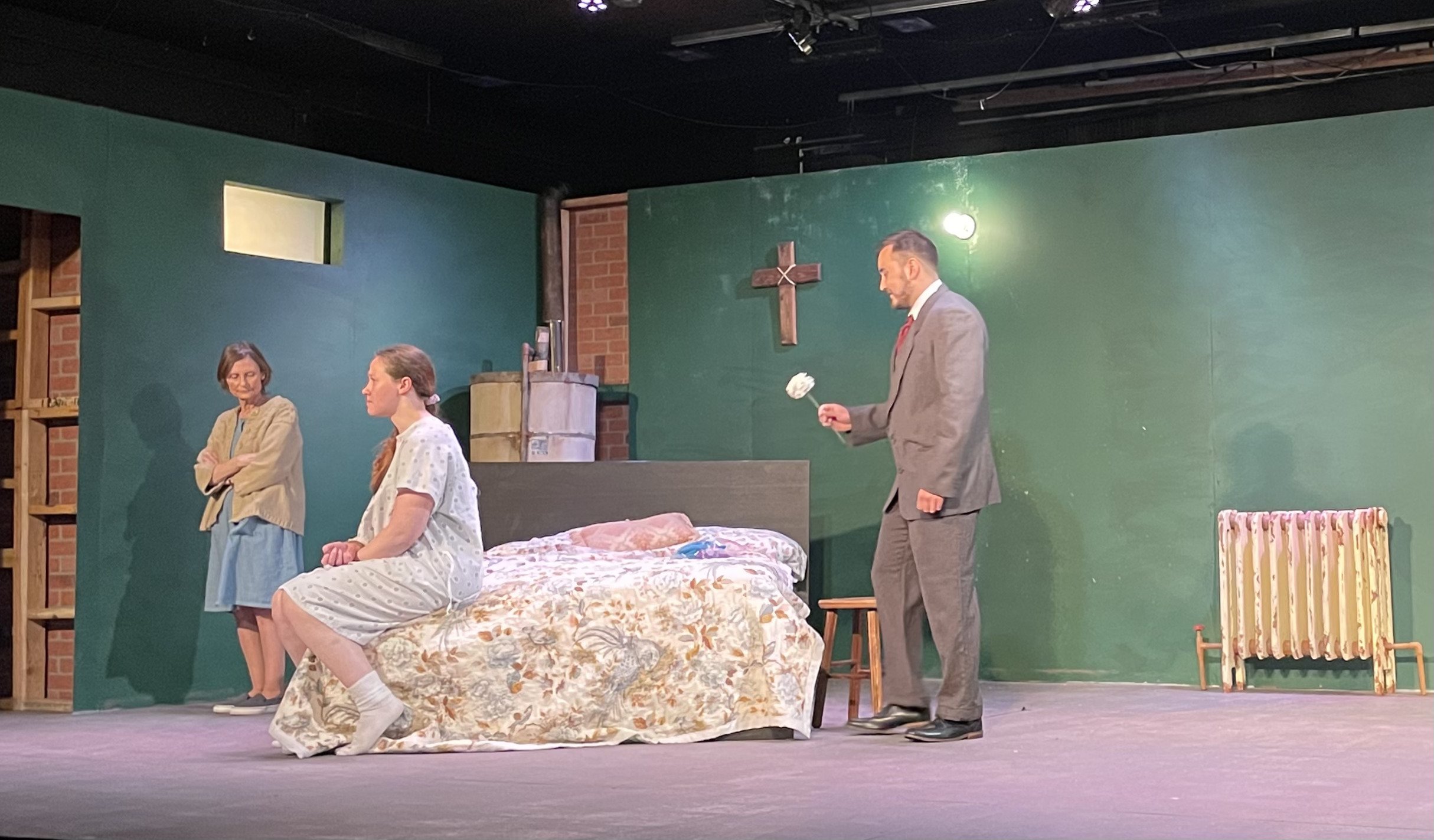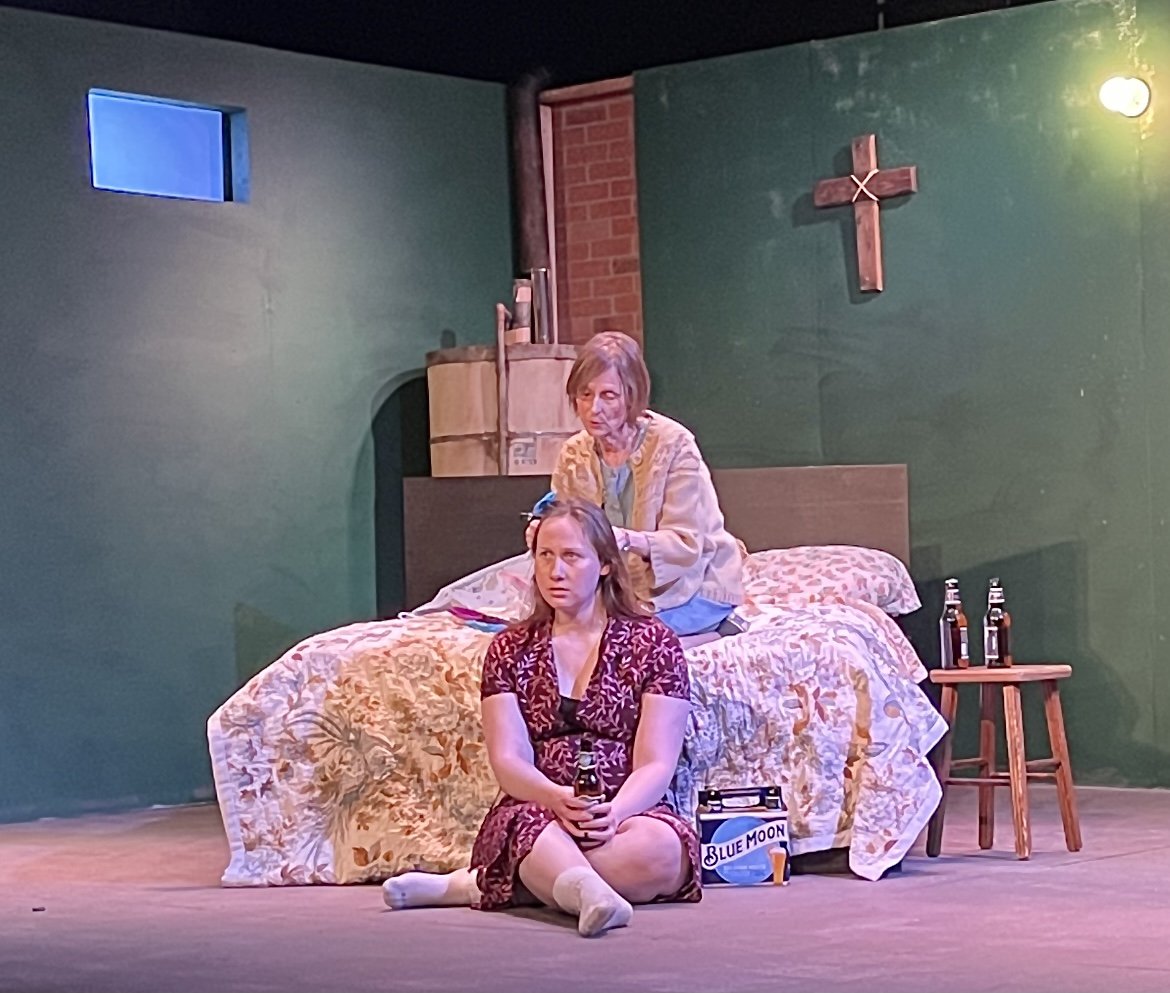Advocacy Through Theater
Good Luck Macbeth is a local theater company that launched in 2009, amidst Reno’s financial recession when artistic opportunities were few and far in between.
The mission of Good Luck Macbeth (GLM) is “to create relevant and impactful works of art that demonstrate the transformative power of theater and co-create equitable opportunities for artists to express their truest authentic selves, both on and off the stage, in Northern Nevada,” according to their website.
GLM prides itself on producing provocative and compelling shows that use the stage as a channel to tell stories that may otherwise go untold. Amanda McHenry, the media director for the theater company, says when it comes to shows that other companies may consider too controversial or risky “we’re still willing to go there. We’re still willing to tell these stories, because it serves us. It serves us as a theater. It serves us as artists. It serves us as a community.”
Amanda McHenry has been involved with the company for several years after studying theater in college and exploring the Reno theater scene with various other groups. McHenry says that, “what makes [Good Luck Macbeth] special is that GLM really tries to break outside of the norm. They’re trying to see- like with Keely and Du- what is going to start a conversation, what is going to get people talking? What is something that’s relevant to today or the communities we’re trying to serve?”
Paige Tatem has been involved as a stage manager in addition to her acting roles within Good Luck Macbeth. Photo courtesy of Paige Tatem with permission to reuse.
Creating Safe Spaces in Reno
Paige Tatem, who has also been a part of the GLM team for a few years now, has been involved both behind and in front of the curtains. From stage management to acting as the lead in Keely and Du, Paige can attest to the harrowing but moving nature of some of the productions the theater company produces.
“I was involved in The Colony a couple years ago that dealt with forced sterilization; it was very similar in that it was dark and in your face about it because [forced sterilization] is still happening,” Tatem said. “And Keely and Du is a story that is still happening that now has been federally affected. So, it’s great to just put that out there for whoever wants to come listen.”
Part of actualizing the mission of GLM, is being clear and open about what communities they hope to serve through their storytelling.
By selecting productions that are considered transformative and compelling, the theater company aims to create safe space for artists that are underrepresented and underinvested in. Uplifting artists to celebrate their identities and talents through unapologetic authenticity is integral to the mission of Good Luck Macbeth.
“I know for us at GLM, it’s really important to serve the LGBT community and make sure those voices are represented,” shares McHenry, “so it’s really important for us to pick shows that are going to tell the kind of stories that the people we’re trying to reach will connect with, that they know about, that they’ve also experienced.”
Tatem speaks to the value of shining “a light on the stories that people may not want to tell,” and how those connections lead to the inclusion and belonging that the company strives for. She says that, “in a town that’s really blossoming with a lot of really great art that’s going to come up in the next couple of years, having a space to be able to sit down and learn and feel like you’re included and wanted is really important.”
The poster for the current GLM production of Keely and Du.
Keely and Du
Running from March 10th through the 24th, Good Luck Macbeth is showcasing Keely and Du by Jane Martin after several months of hard work. Keely and Du was a finalist for the 1994 Pulitzer Prize for Drama, and its powerful and moving discourse on abortion and reproductive justice is just as important and relevant as it was 30 years ago.
“Keely and Du,” summarizes Tatem, “is about Keely, who’s been sexually assaulted and is then kidnapped and taken by this Christian right to life group. And it really explores her relationship with her captor, Du, and it explores the pro-life, pro-choice topic.”
Tatem shares what it was like to play a part like Keely, who becomes pregnant as a result of her sexual assault, and then kidnapped to prevent her abortion. “I had to keep reminding myself that this could be a real person, and to just play it with conviction. She’s in an awful situation. Her whole life has pretty much been terrible, but she knows that she has to fight and that’s her only way out. Even if nobody listens, she’s gonna fight and scream until she’s listened to. And I think she has a lot of conviction. She doesn’t let anyone tell her ‘no’ or put her in a corner…”
Posing questions about female autonomy and religious realities of procreation, GLM is not unaware of the show’s impact in the Reno community and the risk that goes alongside producing such a poignant show.
The Reno arts community has been receptive to the shows produced by Good Luck Macbeth, but that does not minimize the extent of the work that is still to be done.
“I think people within the artist community are very receptive to the things we’re doing,” McHenry said. “People get really excited, really into what we are doing. But when looking at [the] community as a whole, sometimes I feel like it isn’t quite ready to talk about the things we’re trying to talk about or the things we’re trying to push. Like with Keeley and Du, Reno in general isn’t quite ready to go there. So that’s what I love about GLM, is that we’re willing to go there.”
A photo of Paige Tatem and Kathy Welch as they portray their characters, Keely and Du. Photo courtesy of Amanda McHenry.
Promoting Positive Dialogue
In such a volatile time in the United States for female reproductive rights, people with platforms have a unique opportunity to add to the conversation in a productive way, as what Keely and Du aim to do.
Good Luck Macbeth seeks to use their platform in order to increase our capacity for empathy within the community and to allow others to have an accessible safe space in which they can come forward and get resources to learn and be inspired.
McHenry speaks to the importance of using their platform to promote healthy dialogue and contribute to a pertinent conversation currently being had all over America, “I think we’re valuing vulnerability in a way that we never have before. So it’s a lot easier for us to be like- oh yeah, I’ve been through this, or I know somebody who’s been through this, or I’m just willing to talk about this in a way that might have been more taboo or not okay in the past.”
As Good Luck Macbeth shares their production of Keely and Du, in addition to the other projects and shows throughout the year, they work to promote equity and inclusion and invite the community to be a participant in that effort.



